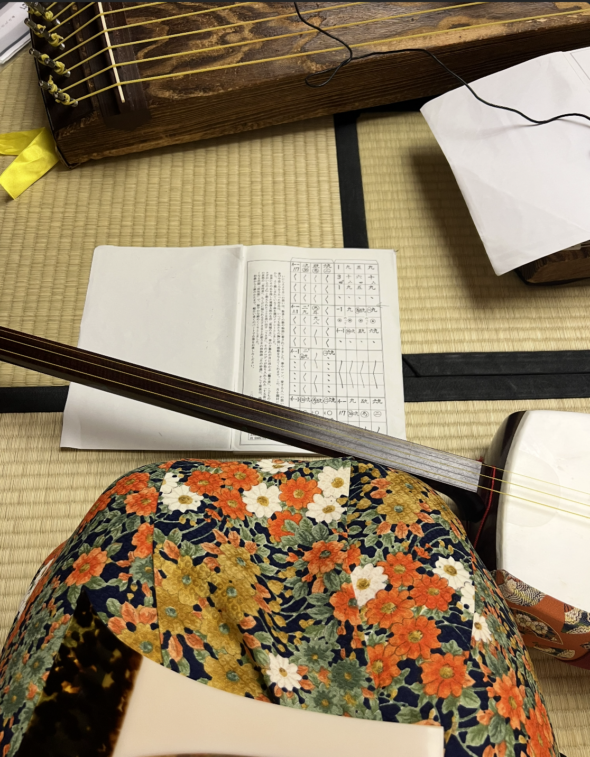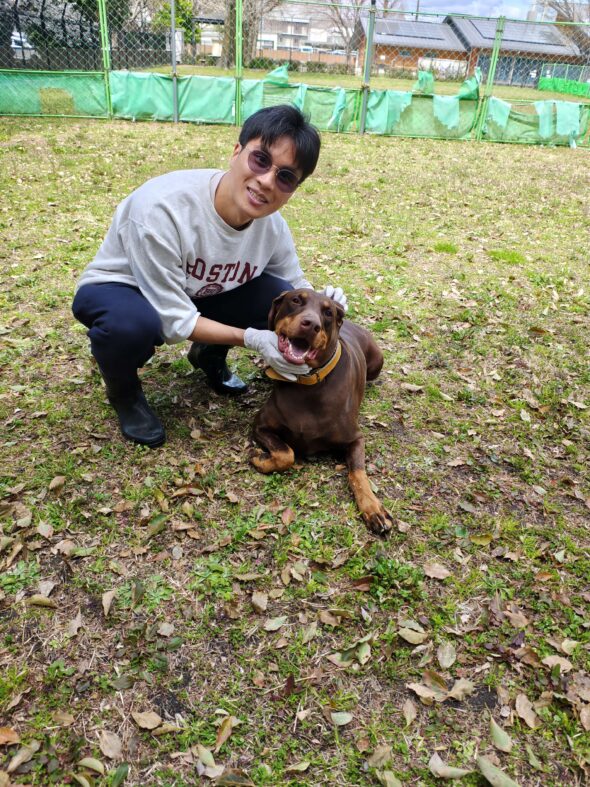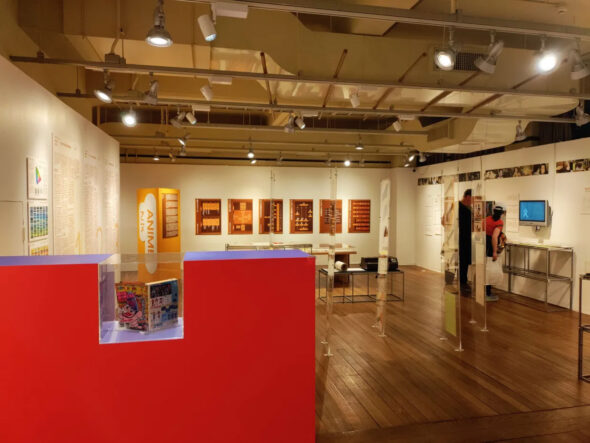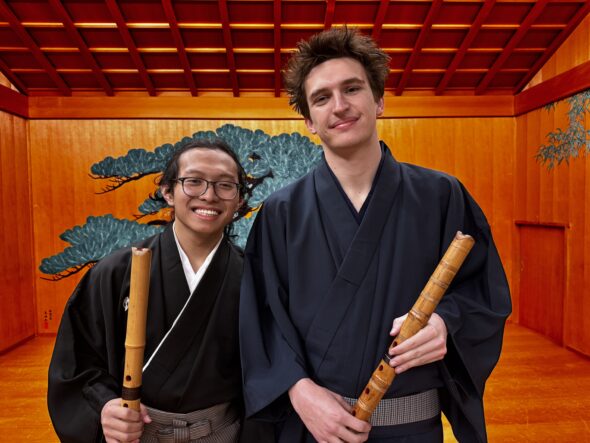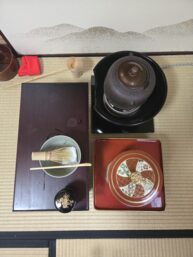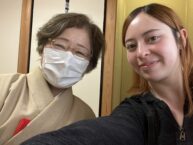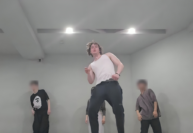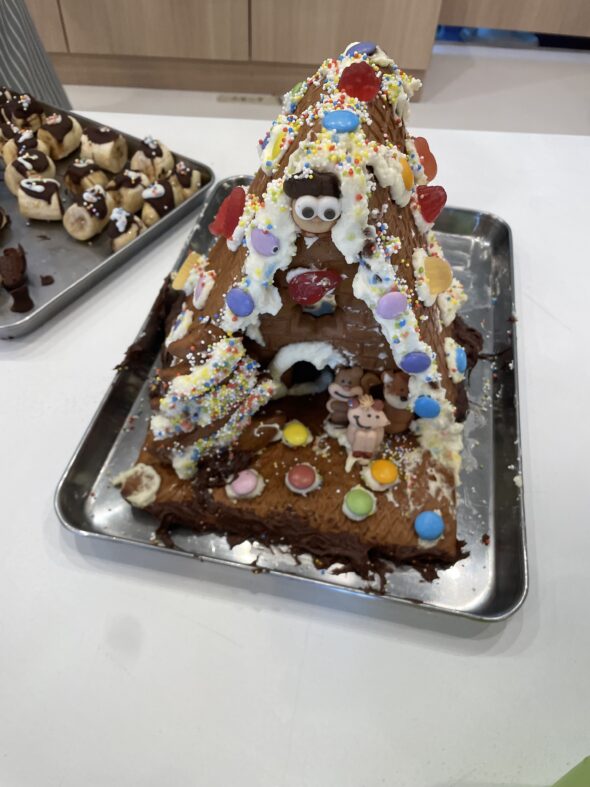
Although NALBA is a cafeteria, as a volunteer I was more so responsible for playing with the kids as meals were being prepared rather than participating in the cooking. We would all have dinner together, during which I would make small talk with the kids and volunteers, and then it would be time to clean up and keep the kids entertained as they waited for their parents to come pick them up.
I love kids so this was an incredibly rewarding (though physically tiring) CIP experience for me as I got to develop relationships with the children and see them excited to spend time with me every week. The volunteers at NALBA are incredibly warm and friendly, and the children were very curious about why I was in Japan and also wanted to know about the USA, so there was always a lot to talk about and I easily made conversation with the people I met there.
I highly recommend NALBA to anyone who is nervous about their Japanese skill level but still wants a bit of a challenge for themselves — it’s easy to connect with the kids because there are so many games you can play together which require limited conversation ability, but at the same time you will definitely still need to practice the more advanced grammar you are learning in class when talking to the kids (and they talk a lot!). Speaking with the older volunteers was always a little outside of my language comfort level, but I’m glad I pushed myself. My biggest advice for anyone in a similar situation is to just power through any hesitancies you have at your CIP. Don’t be afraid to strike up a conversation, and ask clarifying questions as often as needed! I would say the latter piece of that advice is definitely extremely important, as it’s absolutely necessary in order to understand what the rules and boundaries are.
Overall NALBA was a warm and energetic environment I enjoyed going to every week, and leaving it was really hard. I hope many more KCJS students will participate there in the future!
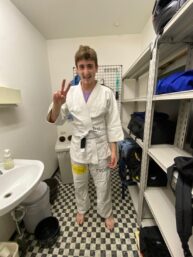

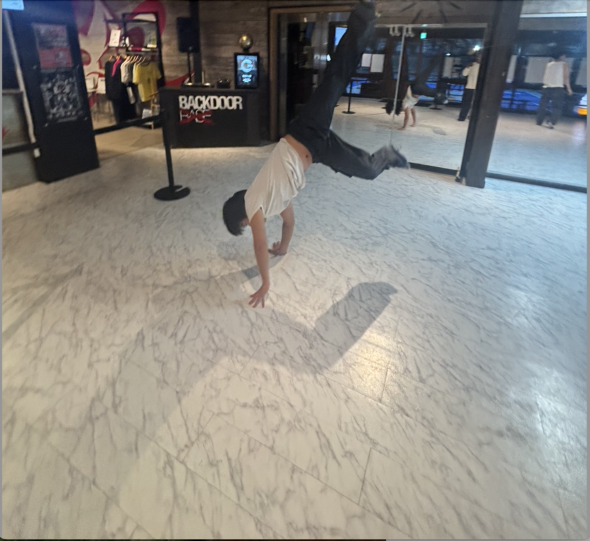 For my CIP, I participated in the hip-hop/breakdancing club called Egoistic Dancers. At the club, we did some workshops and taught each other moves. They have different group chats for what year of breaking you are at, for example, if you are a first year, they would invite you to beginner workshops. The club didn’t really do any cyphering, which I feel like was very much needed, as it allowed everyone to interact with each other. Many of the club members were very busy with upcoming tournaments and shows, thus there was not much room to interact with fellow breakers. Unfortunately, they also did not have a real break space, so I would often go to another place to break. Some advice would be to do some more research before committing to a CIP, and it doesn’t always have to be something that you are really into, because if I could go back, I would have changed my CIP to something I’ve never done before but had some interest in. I think CIP should be moreso a place to meet and interact with the local Japanese students.
For my CIP, I participated in the hip-hop/breakdancing club called Egoistic Dancers. At the club, we did some workshops and taught each other moves. They have different group chats for what year of breaking you are at, for example, if you are a first year, they would invite you to beginner workshops. The club didn’t really do any cyphering, which I feel like was very much needed, as it allowed everyone to interact with each other. Many of the club members were very busy with upcoming tournaments and shows, thus there was not much room to interact with fellow breakers. Unfortunately, they also did not have a real break space, so I would often go to another place to break. Some advice would be to do some more research before committing to a CIP, and it doesn’t always have to be something that you are really into, because if I could go back, I would have changed my CIP to something I’ve never done before but had some interest in. I think CIP should be moreso a place to meet and interact with the local Japanese students.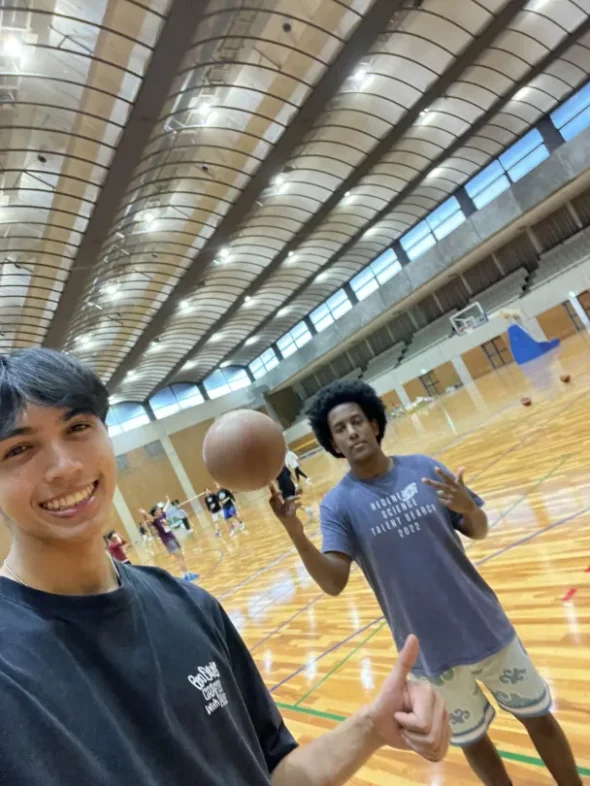 For my CIP, I joined Intensity, one of Doshisha’s basketball circles, where I participated in weekly practices throughout the semester. This circle holds practices on MTF from 3pm-6pm, and there are usually around 10-15 members who always show up.
For my CIP, I joined Intensity, one of Doshisha’s basketball circles, where I participated in weekly practices throughout the semester. This circle holds practices on MTF from 3pm-6pm, and there are usually around 10-15 members who always show up.